Special education teachers require a very specific set of skills if they hope to do right by their students. Even the best make mistakes, but opening up to what others have to say and offer grants them an excellent opportunity to learn and forge viable future solutions. That’s why reading proves fundamental when entering the industry. Without the free exchange of ideas and insights, many promising kids and teens with special needs might not receive the educational opportunities that are their right.
Plenty of fantastic reads exist beyond this, of course, so read these selections and use them as an introduction to all the varying perspectives out there. This list strives more for diversity rather than any one facet in particular. Don’t take it personally if a favorite ended up left off. That doesn’t make it a bad book by any means!
-
Wrightslaw: Special Education Law by Pamela Darr Wright and Peter W.D. Wright
 Picking up the latest edition is integral to the savvy special education teacher, as it means the most updated information about laws and policies driving the industry. It should be pretty obvious why educators need to pick up this hefty volume — going without might compromise the best possible service and advocacy for special needs students.
Picking up the latest edition is integral to the savvy special education teacher, as it means the most updated information about laws and policies driving the industry. It should be pretty obvious why educators need to pick up this hefty volume — going without might compromise the best possible service and advocacy for special needs students. -
So You Want to be a Special Education Teacher by Jim Yerman
 Jim Yerman pulls from more than three decades of special education experience to offer hopeful and novice professionals a comprehensive look at what to expect. In many ways, the classroom forges families, and they weather triumphs and tragedies with love, laughter, and the occasional tear. The career path won’t always prove easy or smooth, but sweet little moments and victories might make it well worth it for many devoted educators.
Jim Yerman pulls from more than three decades of special education experience to offer hopeful and novice professionals a comprehensive look at what to expect. In many ways, the classroom forges families, and they weather triumphs and tragedies with love, laughter, and the occasional tear. The career path won’t always prove easy or smooth, but sweet little moments and victories might make it well worth it for many devoted educators. -
The Special Educator’s Survival Guide by Roger Pierangelo
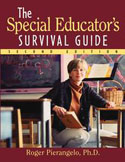 Whether a battle-scarred education veteran or a greenhorn eager to prove mettle and get kids learning, Roger Pierangelo’s advice resonates. Every facet of working with special needs children and teens ends up covered here, including legalities, dealing with parents, diagnostics, and plenty more. Make sure to stay current and check for the latest editions, as legislation and other procedures may change between printings.
Whether a battle-scarred education veteran or a greenhorn eager to prove mettle and get kids learning, Roger Pierangelo’s advice resonates. Every facet of working with special needs children and teens ends up covered here, including legalities, dealing with parents, diagnostics, and plenty more. Make sure to stay current and check for the latest editions, as legislation and other procedures may change between printings. -
The Complete Guide to Special Education by Alan W. Brue and Linda Wilmshurst
 As the title implies, these special education experts dish on anything and everything the aspiring or experienced teacher must know. But it also looks at the processes and policies through a parental filter as well, offering some insightful analysis about what they might experience outside of the home. When it comes to assisting kids and teens with special needs, both educators and parents have to understand one another’s perspectives; without this diplomacy, students might not end up with the education they deserve.
As the title implies, these special education experts dish on anything and everything the aspiring or experienced teacher must know. But it also looks at the processes and policies through a parental filter as well, offering some insightful analysis about what they might experience outside of the home. When it comes to assisting kids and teens with special needs, both educators and parents have to understand one another’s perspectives; without this diplomacy, students might not end up with the education they deserve. -
The Complete Learning Disabilities Handbook by Joan M. Harwell and Rebecca Williams Jackson
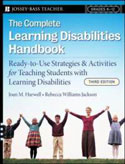 Discover the optimum strategies for education and understanding the different learning disabilities present in a special needs classroom. Since requirements change from student to student, it would behoove their teachers to fully grasp the specific diagnoses. As you can probably imagine, picking up the latest edition is the most prudent idea.
Discover the optimum strategies for education and understanding the different learning disabilities present in a special needs classroom. Since requirements change from student to student, it would behoove their teachers to fully grasp the specific diagnoses. As you can probably imagine, picking up the latest edition is the most prudent idea. -
Ten Things Your Student with Autism Wishes You Knew by Ellen Notbohm and Veronica Zysk
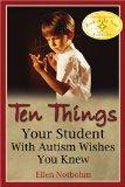 Special education professionals dealing with autism spectrum students will greatly appreciate this comprehensive, sensitive look at what life is like with the disorders. By getting into the minds and experiences of such children and teens, Ten Things Your Student with Autism Wishes You Knew proves an integral resource when drawing up viable lesson plans and properly meeting specific emotional needs. Parents and other loved ones struggling to understand ASD individuals will also benefit from picking up this revolutionary read.
Special education professionals dealing with autism spectrum students will greatly appreciate this comprehensive, sensitive look at what life is like with the disorders. By getting into the minds and experiences of such children and teens, Ten Things Your Student with Autism Wishes You Knew proves an integral resource when drawing up viable lesson plans and properly meeting specific emotional needs. Parents and other loved ones struggling to understand ASD individuals will also benefit from picking up this revolutionary read. -
Lost at School by Ross W. Greene
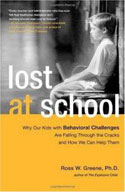 Behavioral issues also fall under the special needs umbrella, though they receive less attention than some of the other disorders out there. Ross W. Greene outlines how these problems manifest, the ways in which they internally and externally affect students, and what needs to be done to address them. Use some of his strategies to prevent dangerous, harmful actions in the classroom and instill valuable skills that will hopefully last a lifetime.
Behavioral issues also fall under the special needs umbrella, though they receive less attention than some of the other disorders out there. Ross W. Greene outlines how these problems manifest, the ways in which they internally and externally affect students, and what needs to be done to address them. Use some of his strategies to prevent dangerous, harmful actions in the classroom and instill valuable skills that will hopefully last a lifetime. -
Assessing Learners with Special Needs by Terry Overton
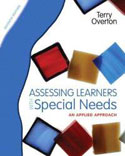 Public school special education teachers form the target audience of Assessing Learners with Special Needs. The book even takes into consideration the different requirements behind a wide range of linguistic and cultural backgrounds as well, making it ideal for those in diverse neighborhoods. Just make sure to purchase or rent the latest edition for the most up-to-date information.
Public school special education teachers form the target audience of Assessing Learners with Special Needs. The book even takes into consideration the different requirements behind a wide range of linguistic and cultural backgrounds as well, making it ideal for those in diverse neighborhoods. Just make sure to purchase or rent the latest edition for the most up-to-date information. -
The Mislabeled Child by Brock Eide and Fernette Eide
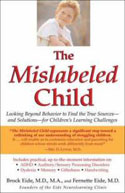 The doctors Eide want teachers (and parents) to firmly grasp the various special needs diagnoses and the negative implications of a wrong label. The Mislabeled Child outlines the myriad disorders and disabilities they may encounter in their careers and viable teaching strategies for each one. In addition, the authors provide case studies that educators will probably find amazingly useful.
The doctors Eide want teachers (and parents) to firmly grasp the various special needs diagnoses and the negative implications of a wrong label. The Mislabeled Child outlines the myriad disorders and disabilities they may encounter in their careers and viable teaching strategies for each one. In addition, the authors provide case studies that educators will probably find amazingly useful. -
The Gift of Dyslexia by Eldon M. Braun and Ronald D. Davis
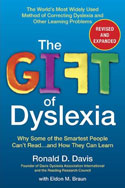 Consider this inquiry into a common learning disability when wanting to learn more about diagnoses, treatments, and the physiological origins. It offers up an interesting perspective about some of the overlooked cognitive and creative potential behind dyslexia that some professionals might not even consider. The educational solutions included might prove beneficial as well, so give them a shot.
Consider this inquiry into a common learning disability when wanting to learn more about diagnoses, treatments, and the physiological origins. It offers up an interesting perspective about some of the overlooked cognitive and creative potential behind dyslexia that some professionals might not even consider. The educational solutions included might prove beneficial as well, so give them a shot. -
Misdiagnosis and Dual Diagnoses of Gifted Children and Adults by Edward R. Amend, Paul Beljan, Jean Goerss, F. Richard Olenchak, James T. Webb, and Nadia E. Webb
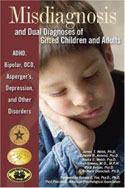 One tragically common mindset paints all special needs students as possessing below-average intelligence and aptitude — an unfortunate phenomenon resulting in stigmatization and many kids going without the proper treatment and educational accommodations. When working with the gifted who happen to struggle with different learning, psychological, or behavioral disabilities, consult this guide for both advice and insight. Both parents and teachers can benefit from understanding the complex interplay between various diagnoses.
One tragically common mindset paints all special needs students as possessing below-average intelligence and aptitude — an unfortunate phenomenon resulting in stigmatization and many kids going without the proper treatment and educational accommodations. When working with the gifted who happen to struggle with different learning, psychological, or behavioral disabilities, consult this guide for both advice and insight. Both parents and teachers can benefit from understanding the complex interplay between various diagnoses. -
When the Brain Can’t Hear by Teri James Bellis
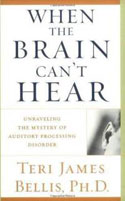 Special education teachers and other professionals working closely with hearing impaired individuals might want to explore the science behind a very specific, often misunderstood, diagnosis. Auditory processing disorder receives a thorough explanation here. Told from the perspective of a doctor suffering from the condition, it alternates between personal accounts and clinical findings.
Special education teachers and other professionals working closely with hearing impaired individuals might want to explore the science behind a very specific, often misunderstood, diagnosis. Auditory processing disorder receives a thorough explanation here. Told from the perspective of a doctor suffering from the condition, it alternates between personal accounts and clinical findings. -
Better IEPs by Barbara D. Bateman and Mary Anne Linden
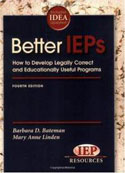 Because so many legalities dictate the hows and whys behind special education, teachers must completely comprehend them when creating individualized education programs. Lest they think such restrictions might compromise the quality of their lessons, Barbara D. Bateman and Mary Anne Linden make sure to maximize educational viability. It should prove a great help when serving students and addressing student concerns.
Because so many legalities dictate the hows and whys behind special education, teachers must completely comprehend them when creating individualized education programs. Lest they think such restrictions might compromise the quality of their lessons, Barbara D. Bateman and Mary Anne Linden make sure to maximize educational viability. It should prove a great help when serving students and addressing student concerns. -
How the Special Needs Brain Learns by David A. Sousa
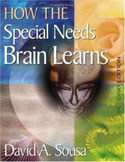 Before working with special needs students, take the time to fully comprehend the physiology behind different conditions. Putting forth the effort means creating stronger lesson plans addressing specific roadblocks. Just make sure to check for any new updated editions, as medical advances and different teaching strategies will impact the content over time.
Before working with special needs students, take the time to fully comprehend the physiology behind different conditions. Putting forth the effort means creating stronger lesson plans addressing specific roadblocks. Just make sure to check for any new updated editions, as medical advances and different teaching strategies will impact the content over time. -
The Secret Life of the Dyslexic Child by Robert Frank and Kathryn Livingston
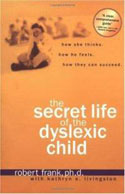 Like the title explicitly states, this book unpeels the misunderstandings and myths behind life with dyslexia. By digging deep inside the physiology and psychology of the afflicted, The Secret Life of the Dyslexic Child opens up opportunities for nurturing the empathy and compassion necessary when teaching them. In addition, the authors also provide educators with solid advice on how to best meet the needs of their dyslexic students, no matter the severity.
Like the title explicitly states, this book unpeels the misunderstandings and myths behind life with dyslexia. By digging deep inside the physiology and psychology of the afflicted, The Secret Life of the Dyslexic Child opens up opportunities for nurturing the empathy and compassion necessary when teaching them. In addition, the authors also provide educators with solid advice on how to best meet the needs of their dyslexic students, no matter the severity. -
Case Studies in Assessment of Students with Disabilities by Victoria Groves Scott and Mary Konya Weishaar
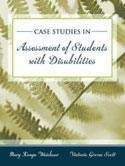 Case studies regarding both practice and in-class assessments are presented here in order to provide a well-rounded view of a very important cog in the special education machine. Practicality reigns supreme here, and teachers will appreciate seeing how their training applies to real-life situations. With so many questions and exercises to test their knowledge, there’s plenty here to promote improved skill sets.
Case studies regarding both practice and in-class assessments are presented here in order to provide a well-rounded view of a very important cog in the special education machine. Practicality reigns supreme here, and teachers will appreciate seeing how their training applies to real-life situations. With so many questions and exercises to test their knowledge, there’s plenty here to promote improved skill sets. -
Thinking in Pictures by Temple Grandin
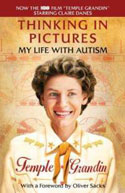 Professor and autism awareness activist Temple Grandin writes extensively about her life on the spectrum, so almost any of her books on the subject prove well worth reading. Here, she candidly talks about how a diagnosis of autism changed her life and impacted her perspectives while simultaneously dissecting it through a scientific lens. Thinking in Pictures provides an impressively in-depth look at a complex, frequently misunderstood, medical condition.
Professor and autism awareness activist Temple Grandin writes extensively about her life on the spectrum, so almost any of her books on the subject prove well worth reading. Here, she candidly talks about how a diagnosis of autism changed her life and impacted her perspectives while simultaneously dissecting it through a scientific lens. Thinking in Pictures provides an impressively in-depth look at a complex, frequently misunderstood, medical condition. -
The IEP from A to Z by Jennifer Twachtman-Bassett and Diane Twachtman-Cullen
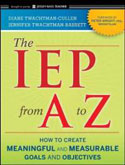 No matter a student’s academic requirements, this guide helps teachers outline the best possible individualized education plans to meet them. Parents, too, are included in the process, and the authors encourage special educators to work with them almost as intently as the kids and teens themselves. Both new and experienced instructors alike should consult the expressed advice whenever they hit a snag in their lesson plans.
No matter a student’s academic requirements, this guide helps teachers outline the best possible individualized education plans to meet them. Parents, too, are included in the process, and the authors encourage special educators to work with them almost as intently as the kids and teens themselves. Both new and experienced instructors alike should consult the expressed advice whenever they hit a snag in their lesson plans. -
Including Students with Severe and Multiple Disabilities in Typical Classrooms by June E. Downing
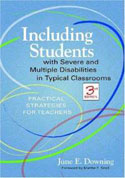 In reality, many — if not most — special needs kids and teens end up in mainstream classrooms that may not fully address their requirements for at least part of their educations. Suffice it to say, the phenomenon proves exceptionally challenging to teachers and students alike, and this book guides them through the most viable methods for providing an excellent, accommodating education. Special needs educators whose pupils bounce between different classroom styles should keep abreast of the unique structure, issues, and solutions relevant to the academic structure.
In reality, many — if not most — special needs kids and teens end up in mainstream classrooms that may not fully address their requirements for at least part of their educations. Suffice it to say, the phenomenon proves exceptionally challenging to teachers and students alike, and this book guides them through the most viable methods for providing an excellent, accommodating education. Special needs educators whose pupils bounce between different classroom styles should keep abreast of the unique structure, issues, and solutions relevant to the academic structure. -
The Special Educator’s Comprehensive Guide to 301 Diagnostic Tests by George Giuliani and Roger Pierangelo
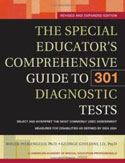 Assessment obviously comprises one super huge facet of the special education sector, so it’s obvious that the teachers have to know how the process works. George Giuliani and Roger Pierangelo forego the clinical in favor of something more approachable, which those without PhDs will certainly find agreeable. It’s a lot to process, no doubt, but the time and cerebral investment are more than worth it in the end.
Assessment obviously comprises one super huge facet of the special education sector, so it’s obvious that the teachers have to know how the process works. George Giuliani and Roger Pierangelo forego the clinical in favor of something more approachable, which those without PhDs will certainly find agreeable. It’s a lot to process, no doubt, but the time and cerebral investment are more than worth it in the end.
No comments:
Post a Comment